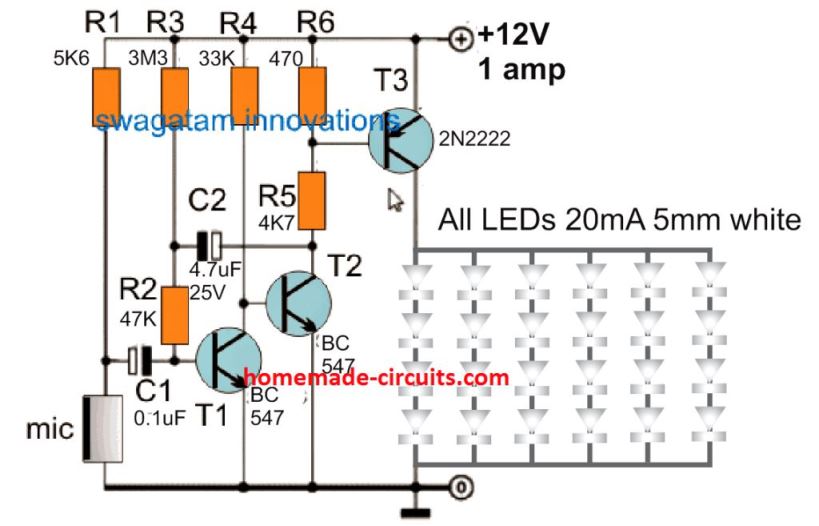How to Make Your Own Sound and Voice Reactive LEDs using Arduino Circuit Diagram
How to Make Your Own Sound and Voice Reactive LEDs using Arduino Circuit Diagram Sound Reactive LED Strip: THERE MAY BE 9 STEPS BUT I PROMISE THIS ONE IS QUICK AND EASY! In this Instructable I will be showing you how to create a light reactive LED system. In this clip, I used a single color LED strip, but you you can use a single LED, multiple LED… As soon as the power is switched on, the microphone is powered. When it responds to sound, it emits an electrical signal. This signal is coupled by capacitor to the first transistor amplification. The amplified signals are sent to second transistor base. Second transistor drives LED to emit light. The louder the sound, the brighter the LED.

Assembling an electronic DIY Kit "Voice-Activated LED" for beginners.This video shows how to make a Sound Activated LEDs using an electronic DIY kit. The cir

How To Make Sound Activated Multicolor LED Lights Without Power Circuit Diagram
digitalRead(soundSensor); reads the digital value from the sound sensor (either 0 or 1). Serial.print() and Serial.println() print the sound sensor's value to the Serial Monitor. digitalWrite() sets the LED states: If soundValue == 1 (sound detected), all LEDs turn ON. If soundValue == 0 (no sound detected), all LEDs turn OFF. The IC can likewise be utilized to make a good-quality sound detector or sensor circuit. The circuit will blink an LED on any sound like a whistle, clap, human voice, sound system, or cellphone ring when the circuit is close to the mobile phone. In this video, We'll teach you making a simple sound activated LED light circuit, that circuit led light with dance with the music. You can use this sound re

In this video, we are going to show you making a music activated led light circuit without mic and IC. You can make this circuit at home easily. You also can

How To Make DIY Music Reactive LED using Arduino Circuit Diagram
resistance(R) = (power supply voltage - LED voltage drop) / LED current The typical recommended LED current is 20mA, our power supply voltage is 9V, and the LED voltage drop for a clear blue LED is 3.0V. This results in: (9-3)/0.020=300 ohm Of course this doesn't need to be exact, a 330 ohm resistor will work fine here.
